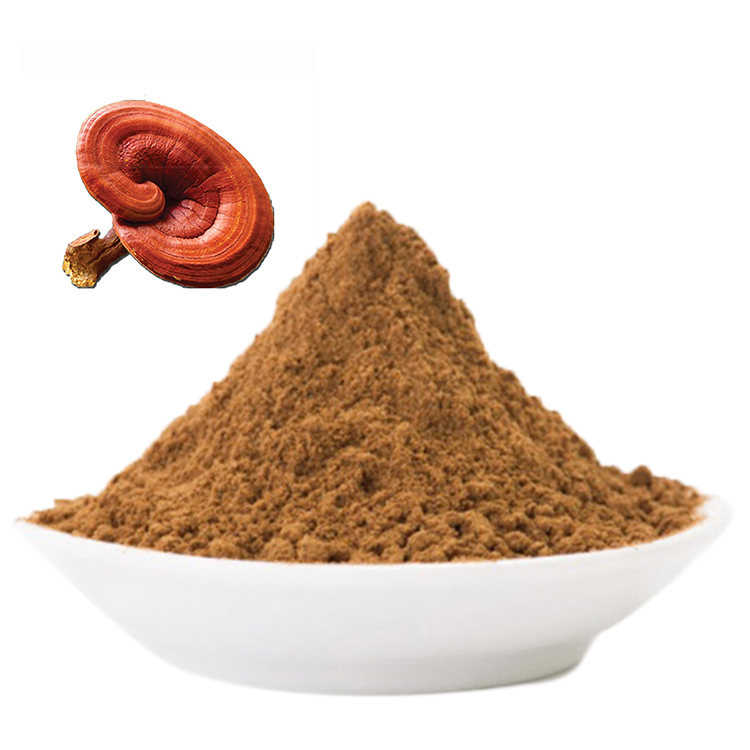Introduction
As the global popularity of Reishi mushroom extract grows, so does the need for buyers and brands to ensure they are sourcing safe, potent, and authentic products. In this context, the Certificate of Analysis (COA) has become an essential document—serving as the scientific proof behind every batch of Reishi extract. This article explains the importance of the COA when buying Reishi mushroom extract, what information a good COA should include, and how to use it to verify product quality, with practical insights for buyers of all major product grades such as USDA Certified Ganoderma Powder, Organic Mushroom Extract Powder, Organic Reishi Mushroom Powder, Ganoderma Extract Powder, and Organic Red Ganoderma Powder.
1. What Is a Certificate of Analysis (COA) and Why Is It Essential?
Proof of Purity and Potency
The COA provides detailed test results for the main active ingredients in Reishi mushroom extract—especially polysaccharides and triterpenes.
For example, buyers of Organic Mushroom Extract Powder and Ganoderma Extract Powder use the COA to confirm that these powders contain the standardized percentages of bioactives claimed on the label (e.g., 30% polysaccharides).
Potency confirmation is especially important for premium products, such as USDA Certified Ganoderma Powder and Organic Reishi Mushroom Powder, which are often used in clinical research or for making strong wellness claims.
Safety and Compliance
A comprehensive COA will also show results for contaminants, including heavy metals (like lead, mercury, and cadmium), pesticide residues, and microbial pathogens (such as E. coli, Salmonella, or yeast/mold).
For export or retail in regulated markets, a COA is often required to pass customs inspections and to meet retailer requirements.
Traceability and Transparency
The COA typically includes batch/lot numbers, production dates, and details on the production facility, ensuring that every product—whether it’s Organic Red Ganoderma Powder or conventional extract—can be traced from shelf to source.
This level of transparency protects both brands and consumers from fraud or mislabeling.
2. Key Elements to Look for in a COA for Reishi Mushroom Extract
Active Compound Content
The COA should clearly state the concentration of major bioactive compounds (e.g., polysaccharides, triterpenes, beta-glucans).
Look for analytical methods such as HPLC (High-Performance Liquid Chromatography) or spectrophotometry, which are industry standards for quantifying actives.
For USDA Certified Ganoderma Powder and Organic Reishi Mushroom Powder, high levels of active compounds should be matched with the product’s marketing claims.
Microbiological and Contaminant Testing
The COA should list results for total plate count (TPC), yeast and mold, coliforms, and pathogens.
Heavy metal content (lead, mercury, arsenic, cadmium) must be below established limits. The same goes for pesticide residues, which are particularly relevant for Organic Mushroom Extract Powder and Organic Red Ganoderma Powder.
Ensure the document references official test limits or regulatory standards.
Physical and Sensory Attributes
The COA may include descriptions of color, odor, and appearance, useful for confirming the authenticity of Ganoderma Extract Powder.
Moisture content is often listed, as it impacts shelf life and product stability.
Batch and Production Details
A valid COA will show batch number, production date, and expiry date, enabling traceability and easier recall management if needed.
For brands, this information is crucial to prove due diligence in quality assurance.
3. How to Use a COA for Product Verification and Risk Management
Cross-Verification with Supplier Claims
Match COA values for actives and safety markers with the product’s technical data sheet (TDS) or marketing claims. If you’re buying Organic Reishi Mushroom Powder with a claim of “>30% polysaccharides,” this should be clearly confirmed on the COA.
Reputable suppliers will gladly provide a COA with every batch—be cautious if the document is missing or inconsistent.
Regulatory Compliance and Documentation
Use the COA to meet import/export requirements, retail partner audits, and third-party certifications (like USDA Organic).
Many certification bodies will require the COA to be submitted as part of the approval process for ingredients like USDA Certified Ganoderma Powder or Organic Red Ganoderma Powder.
Building Trust and Brand Value
Sharing COAs with business customers and even consumers (e.g., via QR code on packaging) builds trust and demonstrates commitment to quality.
In case of product complaints or safety recalls, the COA is the primary document for tracing issues and proving compliance.
4. Challenges and Best Practices in Obtaining and Using COAs
Third-Party vs. In-House Testing
Ideally, COAs should come from accredited, independent labs—not just the manufacturer’s in-house facility. Third-party COAs carry more weight for both regulatory authorities and savvy buyers.
Consistency and Authenticity
Watch for red flags such as missing batch numbers, mismatched dates, or repeated use of the same document for different lots. Authentic COAs are unique for each batch.
Supplier Transparency
Work with suppliers who proactively share COAs, answer questions, and allow sample re-testing if needed. This is especially critical for large orders of Ganoderma Extract Powder or custom Organic Mushroom Extract Powder blends.
Regular Audits and Spot Testing
Brands should consider periodic spot-checks by sending samples to their own third-party labs. This is a best practice, especially when working with new suppliers or when product quality is mission-critical.
Conclusion
The Certificate of Analysis (COA) is a non-negotiable tool for anyone buying Reishi mushroom extract—whether for supplements, foods, or beverages. It provides scientific assurance of purity, potency, and safety across all grades, from USDA Certified Ganoderma Powder to Organic Mushroom Extract Powder, Organic Reishi Mushroom Powder, Ganoderma Extract Powder, and Organic Red Ganoderma Powder. By understanding and leveraging the COA, buyers protect their business, ensure regulatory compliance, and deliver genuine value to consumers.
Key Product Keywords:
USDA Certified Ganoderma Powder, Organic Mushroom Extract Powder, Organic Reishi Mushroom Powder, Ganoderma Extract Powder, Organic Red Ganoderma Powder, Reishi COA, Certificate of Analysis Mushroom, Ganoderma Quality Control, Third-Party Lab Testing, Mushroom Extract Authenticity, Organic Ganoderma Certificate, Reishi Batch Testing, Reishi Powder Safety, Mushroom Traceability, Functional Food COA, Herbal Supplement Verification, Clean Label Reishi, Food Safety Documentation.
Read More:
Real Consumer Feedback on Ganoderma Extract: Honest Reviews & Global Insights
Thirty Days on Ganoderma Extract: What Changed in My Body?
Precautions and Contraindications When Taking Ganoderma Extracts: A Comprehensive Guide
Hangzhou Molai Biotech Co., Ltd has supply capacity 1200+ tons per year for mushroom powders and extracts, including the mushroom mycelium from modern technology of Deeply Liquid Fermentation and fruiting bodies from the grown real mushrooms to meet the different markets.
Hangzhou Molai Biotech Co., Ltd supplies the products both in Powders and Extracts for commercial using worldwidely, such as Cordyceps Sinensis, Cordyceps Militaris, Maitake Mushroom, Lion’s Mane Mushroom, Turkey Tail Mushroom, Reishi Mushroom, Chaga Mushroom etc.
We offer OEM and ODM services, could extract the products according to your special requirements, process the powders/extracts into Capsules, Tablets, Small Bags, Mushroom Bars, Mushroom Coffee etc.
Organic Lion's Mane Mushroom Extract
Organic Reishi Mushroom Extract
Organic Cordyceps Militaris Extract
Organic Turkey Tail Mushroom Extract
Organic Chaga Mushroom Extract
Organic Shiitake Mushroom Extract
Organic Maitake Mushroom Extract
Organic Tremella Mushroom Extract






